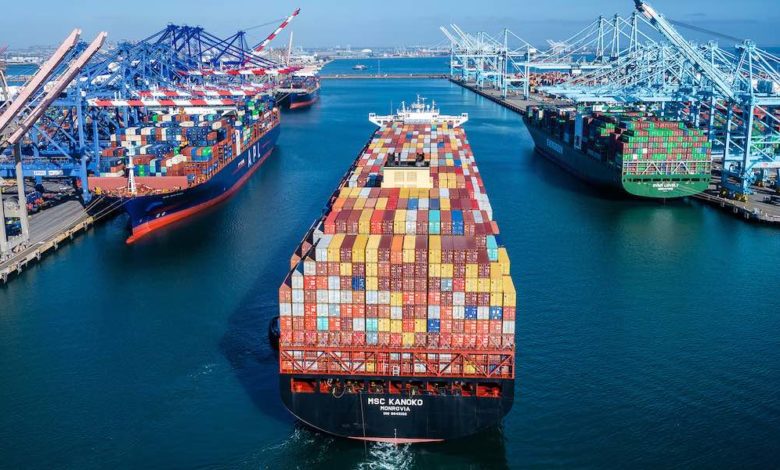Global liners enter familiar price war territory

Liner shipping has entered a price war, a race to the bottom that has characterised almost every cycle of this shipping sector for the last 50 years.
Analysts at Sea-Intelligence have suggested that the decision by the big global container carriers to not reduce capacity in line with the dropping demand registered over the past six months can only be explained by the fact the market participants have entered into a price war.
“A choice to allow overcapacity to persist is also a choice to allow rates to continue to drop. Such a choice has a description: A price war,” Sea-Intelligence experts wrote in their latest weekly report.
“It has been obvious for a number of months that carriers have reverted to type – the instinct to preserve volumes and price lower to secure short-term bookings has taken over,” commented Simon Heaney, senior manager of container research for UK-based Drewry. “The idea that the extreme profits had changed mindsets has been proven to be totally false.”
Heaney predicted that today’s price cutting will mean freight rates land more closely to pre-pandemic levels, as will profits. Drewry estimates liner shipping made record combined operational profits of $290bn last year, something that will slide to just $15bn in 2023.
“The carriers do not have a choice as a price war is bound to happen whether they want it or not,” argued Hua Joo Tan, the founder of Asia-based consultancy Linerlytica, in conversation with Splash today. “What we have is a perfect storm with excess supply coinciding with the collapse in demand with none of the main carriers willing or able to make an exit from the market,” Tan said.
Commenting on how the market dynamics might play out, Lars Jensen, CEO of Danish consultancy Vespucci Maritime, told Splash that today’s price war will likely be a temporary one, whereupon more capacity will be pulled to stabilise the market.
“But it should be noted that the market is at the same time entering a cyclical downturn which in itself adds negative pressure,” Jensen cautioned.
Korean flagship liner HMM issued record annual profits today of $7.88bn, but became the latest carrier to warn that 2023 will be a challenging year.
“Unfavorable market conditions are expected to continue due to widespread inflation and weak economic growth, putting pressure on demand,” the Seoul-based carrier stated.
“Container freight rates have fallen materially over the past six months and are hovering at 2020 lows across several routes,” Jefferies noted in a recent note to clients, calling for a “major supply response” to right-size the market.
